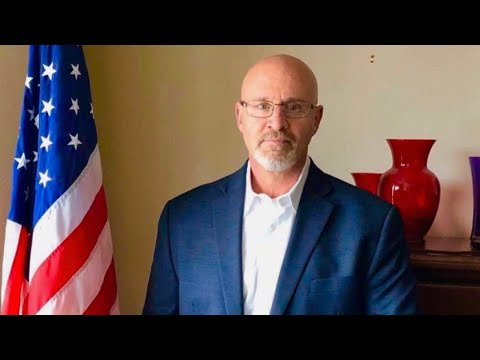*Abdul says the report highlights what he witnessed during the hard lockdown.
In her report into the hard lockdown of Melbourne’s nine public housing towers, Victorian Ombudsman Deborah Glass said the decision was “rushed” and violated the state’s human rights laws.
The report had over 150 submissions from residents of the housing towers. *Abdul, a resident from one of the affected towers – 33 Alfred St – said reading the findings was like validation.
“The Ombudsman report just highlighted what residents and what I witnessed personally, during those 14 days,” Abdul told The Feed.
Ms Glass addressed reporters on Thursday in a press conference, saying, “The government need not apologise for taking necessary and difficult action to keep us all safe in the face of this pandemic.”
“But the rushed decision to detain 3,000 people immediately did not appear to have been taken on such health advice.”
Ms Glass recommended that the government apologise for the hurt and distress caused by the lockdown’s immediacy.
Damian Stock, the CEO of Inner Melbourne Community Legal, agrees with Ombudsman Glass.
He says an apology is an essential start point for the government to mend the harm the residents dealt with during the hard lockdown.
“They weren’t treated like the rest of Victoria, that needs to be acknowledged. There was no trust given to them, there was an assumption that they wouldn’t participate in their own healthcare like the rest of Victoria would,” Stock told SBS News.
However, Victoria’s minister for housing Richard Wynne dismissed the possibility of an apology.
“We make no apology for saving people’s lives. Absolutely no apology for saving people’s lives,” Mr Wynne said on Thursday.
“The primary objective of government is to protect the community. In this context, protecting some of the most vulnerable people in our community who live in those public housing towers is my responsibility as a minister, but also the government’s responsibility as well.”
The report found that Victoria’s Department of Health and Human Services had no outbreak plan for the housing estates in Flemington and North Melbourne.
Abdul’s building, 33 Alfred St, was under the hard lockdown nine days longer than the other eight buildings. He says since March, he along with other residents in the building, were requesting testing to be provided at the building. When it did take place, it was during the hard lockdown, as health officials sought to test all 3000 residents in the nine housing towers.
“We had requested hand sanitisers within the buildings, nothing was given,” he said.
Abdul believes the lack of a plan from DHHS was exacerbated by not paying attention to the concerns of residents, like him.
The findings in the report said the decision to impose the hard lockdown was rushed. The report says after a DHHS meeting on the morning of July 4, residents of the affected housing towers would be told to quarantine in their homes for five days. It was expected to commence in 36 hours.
However, later that day Victoria’s Premier Daniel Andrews called a press conference advising that the hard lockdown would begin immediately.
“Many residents knew nothing of the lockdown or the reason for it when large numbers of police appeared on their estate that afternoon,” Ms Glass said.
The quick turnaround didn’t leave an adequate planning period for organising deliveries for essential items like food, medicine, and sanitary products.
That meant Abdul was pushed into action. In the hours after the announcement by Premier Daniel Andrews, he created the Facebook group called ‘Updates from the Block’ to keep residents informed and to tend to their concerns.
Over the night of July 4, he started organising deliveries of food, medicine, and other essential items.
He believes he was filling the gaps left by the government, and was thrust into a leadership position that he was still grappling with.
“I think it broke me, if I am being real,” he said.
“What do I tell people who are begging me for insulin? What do I tell a mother who has an autistic child who is pleading with me to call the department to get fresh air?,” he said.
Ms Glass said the focus of the investigation on the lockdown at 33 Alfred St was the fact residents had to wait over a week to be able to access fresh air outside of their flats.
However, during stage four in Metropolitan Melbourne, exercise was limited to one-hour per day, and you needed to stay five kilometers from your home.
“It makes me feel angry,” Abdul said.
“It makes me question if they even saw us as human beings, to be honest, that they’re able to make an arbitrary decision against medical advice against, against legal advice, against all these things. For what?”
Abdul is dismayed by the comments from minister Wynne, he says, an apology should be the simplest recommendation from the Ombudsman report to follow.
“It’s kind of hard to initiate any other recommendations when basic accountability of wrongdoing isn’t even admitted,” he said.
“Because we just were requesting them just admit that what happened happened.”
The impact of the hard lockdown is still being felt by Abdul months later.
“I truly fear the police. Now as I walk past them, I am bitterly scared,” he said.
The scene of hundreds of police officers descending toward his building when the lockdown started hasn’t left him. He recalls scenes of him “begging” them to give him deliveries of medication for vulnerable residents.
Abdul’s elderly mother is now afraid to leave their flat at 33 Alfred St. He says he can finally understand some of what his parents faced leaving Eritrea.
“I have heard stories from my parents of what they had been through overseas…escaping trauma,” he said.
“[I thought] I would not relieve them myself. I now fully understand how that feels. And how do you come back from that?”
*Names has been changed for privacy reasons.






